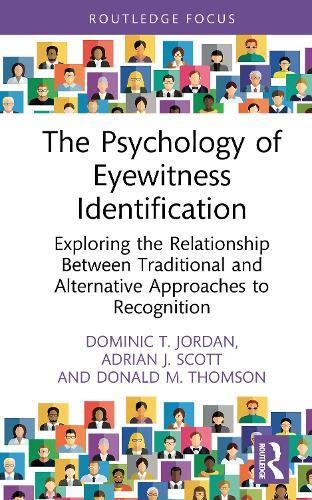Overview
Arguing for a need to modify investigatory and legal processes so that they align with the capabilities of witnesses and reflect the memorial and decision processes that inform recognition judgements, this book examines two radical alternative approaches to lineup-based recognition that do not require witnesses to identify a perpetrator: Non–categorical confidence and non–categorical similarity judgements. Using empirical data, the authors explore the relationship between identification decisions, confidence judgements, and similarity judgements in lineup–based recognition tasks and reflect on whether similarity underpins more complex judgements of identity and confidence. They also examine the practical utility of confidence and similarity judgements and consider how such alternatives might be conceptualised in a legal context. This book draws on the areas of psychology and law to outline the key issues of identification and calls for a revision in how we think about, obtain, and present eyewitness evidence from lineups. Prompting a consideration of new solutions and concepts to help witness errors become a problem of the past, The Psychology of Eyewitness Identification will be of great interest to students, scholars, and practitioners across the fields of criminal justice, psychology, and law, and particularly those with a focus on eyewitness identification.
Full Product Details
Author: Dominic T. Jordan ,
Adrian J. Scott ,
Donald M. Thomson
Publisher: Taylor & Francis Ltd
Imprint: Routledge
Weight: 0.453kg
ISBN: 9781032942827
ISBN 10: 1032942827
Pages: 124
Publication Date: 03 December 2025
Audience:
College/higher education
,
Professional and scholarly
,
Postgraduate, Research & Scholarly
,
Undergraduate
Format: Hardback
Publisher's Status: Forthcoming
Availability: Not yet available

This item is yet to be released. You can pre-order this item and we will dispatch it to you upon its release.
Author Information
Dominic T. Jordan is a Lecturer in Criminology at Edith Cowan University and a consultant researcher in the private sector. Dominic has previously held positions as a researcher within the Sellenger Centre for Research in Law, Justice, and Social Change, and as an officer of the Australian Government’s National Anti-Corruption Commission. His research examines the role of human memory in investigative contexts, with a particular focus on eyewitness identification. Adrian J. Scott is a Reader (Associate Professor) in Psychology at Goldsmiths, University of London, where he is Co-Director of the Forensic Psychology Unit and of an accredited MSc programme in Forensic Psychology. Adrian is a chartered psychologist with associate fellow status within the British Psychological Society and has a broad interest in forensic psychology, specialising in the areas of investigative interviewing, eyewitness testimony, stalking, and image-based sexual abuse. Donald M. Thomson is an Emeritus Professor of Psychology at Deakin University. During his career, Donald developed several postgraduate forensic psychology programmes in Australia, worked as a barrister at the Victorian Bar, and contributed to numerous professional bodies, law reform commissions, and advisory committees. He is a globally renowned expert in the areas of applied cognitive psychology, memory, recognition, and criminal law.



